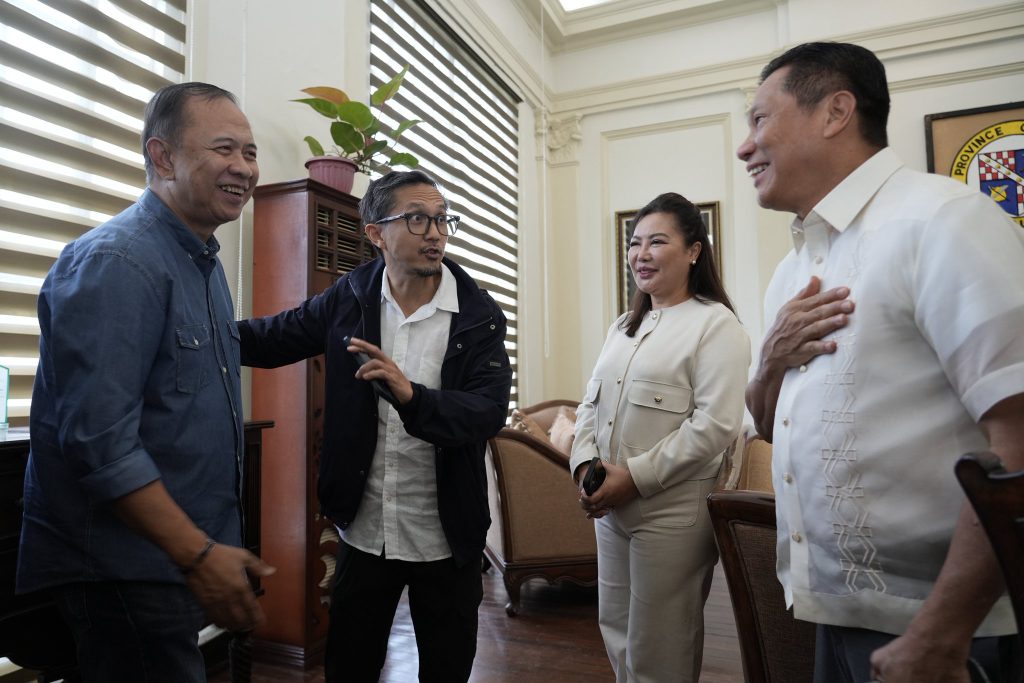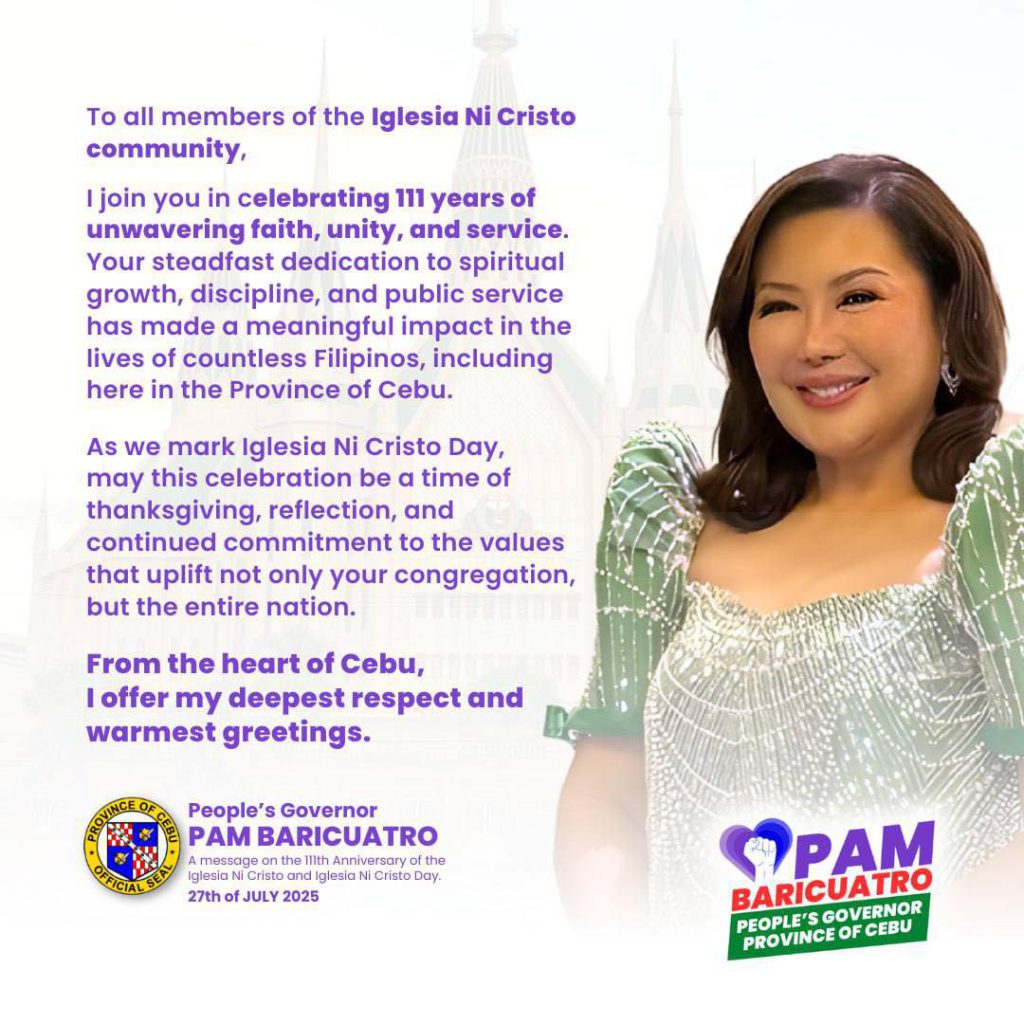While Cebu’s top leaders skip President Ferdinand “Bongbong” Marcos Jr.’s fourth State of the Nation Address (SONA), the province’s five million residents remain sharply attuned to his speech, demanding action on soaring food prices, transportation woes, and tourism recovery. As the nation’s economic powerhouse and Visayas’ political heartbeat, Cebu’s absence in Congress speaks louder than presence—a silent challenge for the administration to deliver real solutions, not just rhetoric.

CEBU, Philippines – Cebu may be geographically absent from the halls of Congress on Monday, July 28th, but its five million residents – spread across the vibrant city and province – will be keenly observing President Ferdinand “Bongbong” Marcos Jr.’s fourth State of the Nation Address (SONA). While Cebu City Mayor Nestor Archival Sr. confirmed his absence, and Cebu Governor Pamela Baricuatro, despite receiving an invitation, will also not be present, their disengagement is not indicative of apathy. Instead, it underscores the region’s significant economic and political weight, and the high stakes involved in the President’s pronouncements.
Cebu, the Philippines’ wealthiest province in terms of assets and the Visayas’ undisputed financial and political heart, is not merely a passive observer. It’s a dynamic engine driving national growth, a crucial trade hub, a leading educational center, and a major tourist destination. Its influence extends beyond its borders, shaping national trends and serving as a testing ground for ambitious infrastructure projects like the Cebu Bus Rapid Transit (CBRT).
READ MORE ARTICLES:
- Indonesia State Bank: Lending for Economic Progress
- Nepal Deadly Protest Shakes the Political Landscape
- DPWH Flood Control Corruption
- Senators, DPWH Linked to Flood Project Scam
- Gov’s official soliciting Kickback in DPWH
- Blessed Carlo Acutis and Pier Giorgio Frassati, to be Canonized Together
- Sarah Discaya | Biography, Business, & Issue
- Dizon Taps Generals, Lawyers, Ex-Airport Chief for DPWH Clean-Up
- Customs Probes Discaya’s Car Tax Records
- Lopez Pledges to Prioritize Commuters’ Welfare as New Transportation Chief
The concerns echoing from Cebu are not unique; they mirror the anxieties felt across the nation. However, their impact on Cebu, given its economic and social significance, is amplified. The fluctuating prices of food, the challenges in transportation, the accessibility and quality of healthcare, and the recent downturn in tourism – all these issues demand the President’s immediate attention. The success or failure of national policies in these areas will directly impact Cebu’s prosperity and the livelihoods of its citizens.
The absence of Cebu’s top officials from the SONA itself is a subtle but powerful statement. It suggests a desire for concrete action rather than mere pronouncements. It’s a call for the President to move beyond rhetoric and deliver tangible solutions that address the region’s specific needs. Cebu’s silence is not an endorsement of inaction; it is a demand for effective governance and a commitment to sustainable development. The President’s words on Monday will be carefully scrutinized, not just in Manila, but across the Visayas, where Cebu’s influence resonates deeply. The region’s economic vitality and the well-being of its people depend on it.
Cebu Mayor Demands Answers on US Trade Deal, Presses Marcos on Rice Price Promise
Cebu City Mayor Michael Rama is demanding transparency from President Bongbong Marcos Jr. regarding a recently signed trade agreement with the United States. The deal, which lowered tariffs on Philippine exports to 19 percent—higher than the initially promised 17 percent—has sparked concerns among local officials.
Mayor Rama questioned the deal’s efficacy, highlighting the $3 billion in aid received from the US. “Is this sufficient to offset the imposed tariffs?” he asked, emphasizing the significant impact on the Philippines, whose exports to the US totaled $73.27 billion (16.6 percent of total exports) in 2024. The agreement also opens the Philippine market to increased imports of American goods, including vehicles, soy, wheat, and medicines. While acknowledging potential cost reductions in medicine, the Mayor stressed the need to carefully assess the long-term effects on Filipino industries.
Beyond the trade deal, Mayor Rama pressed President Marcos to fulfill his campaign pledge to lower the price of rice to ₱20 per kilo. He expressed hope for progress on this front in the coming year, citing Cebu City’s anticipated participation in related initiatives.
The Mayor also urged stronger executive support for the Cebu Bus Rapid Transit (CBRT) system, slated to begin test runs this September. This World Bank and DOTr-backed project is crucial to addressing Cebu’s worsening traffic congestion. Mayor Rama expects the President to firmly commit to the CBRT’s continued operation and expansion during his State of the Nation Address (SONA).
Finally, he called for national-level support for Cebu City’s urban housing and sustainable environmental programs, highlighting the need for collaborative action to address these critical issues. Mayor Rama’s pointed questions and demands underscore the growing pressure on President Marcos to deliver on key promises and address concerns about the economic implications of recent policy decisions.
Cebu’s New Governor Sets Priorities: Healthcare and Tourism Take Center Stage
Agnes Baricuatro, who scored a surprising victory over Gwendolyn Garcia in the 2025 midterm elections, has made it clear: healthcare and tourism are her top priorities for Cebu. Her absence from President Marcos’ State of the Nation Address (SONA), attributed to personal rather than political reasons, underscores her commitment to governance that transcends partisan politics. “The governors were invited,” she clarified in a July 26th interview, “but it’s nothing to do with anything.”
Baricuatro’s focus is firmly on the needs of Cebu’s citizens. She is particularly eager to hear President Marcos’ plans for healthcare, specifically programs designed to bolster healthcare facilities and improve access to services, especially in underserved areas. “My priority projects are centered around healthcare,” she stated, expressing anticipation for the administration’s healthcare policies.
The other critical area Baricuatro highlighted is the revitalization of Cebu’s tourism sector. A significant decline in foreign tourist arrivals, particularly from South Korea – Cebu’s leading international market – has sounded alarm bells. Provincial Administrator Joseph “Ace” Durano revealed an 18 percent drop in South Korean visitors during the first half of 2025, a trend he attributes to aggressive marketing by competitors like Vietnam and shifts in tourist behavior. “Based on market intelligence, Vietnam is our biggest competitor now,” Durano, a former Tourism Secretary, confirmed.
To combat this decline, the provincial government is planning a comprehensive overhaul of its tourism strategy. This includes modernizing digital payment systems, enhancing cultural offerings, strengthening destination marketing, and relaunching the Provincial Tourism Council. Governor Baricuatro emphasizes the need for national tourism programs and funding to keep pace with evolving global trends, ensuring Cebu’s continued success as a premier travel destination. Her clear priorities signal a new direction for Cebu, one focused on the well-being of its people and the sustainable growth of its economy.
Cebu’s New Governor: Collaboration with Marcos Administration, a Priority for the Province
Agnes Baricuatro, Cebu’s newly elected governor, has signaled her willingness to work with President Bongbong Marcos’ administration, despite her past alignment with former President Rodrigo Duterte. In a recent statement, Baricuatro downplayed potential challenges in collaborating with the current administration, emphasizing her unwavering commitment to Cebu’s welfare.
“I don’t think it will be a challenge,” she asserted. “My focus is on what’s best for the people of Cebu. I won’t compromise my political beliefs, but collaboration is key.”
Baricuatro further suggested that even her former political ally, President Duterte, would support her decision to cooperate with the national government if it benefits Cebu’s progress. “Even President Duterte,” she explained, “his focus has always been on the people.” This statement highlights a pragmatic approach to governance, prioritizing the needs of her constituents above strict political affiliations.
This declaration of intent comes just days before President Marcos delivers his fourth State of the Nation Address (SONA) on Monday, July 28th, at the Batasang Pambansa Complex in Quezon City. Baricuatro’s willingness to collaborate suggests a potential for productive partnerships between the national and provincial governments, paving the way for significant advancements in Cebu’s development. Her pragmatic approach promises a new era of cooperation, focusing on tangible results for the people of Cebu.

Governor Baricuatro Honors INC’s 111th Anniversary: A Celebration of Community Impact
Governor Pamela Baricuatro joins the Iglesia Ni Cristo in celebrating 111 years of service to the community. The Governor’s message highlights the INC’s profound and positive impact on the lives of Cebuanos, emphasizing their commitment to faith, unity, and selfless service.
Cebu Governor Pamela Baricuatro extended heartfelt greetings to the Iglesia Ni Cristo (INC) community on their 111th anniversary. In a message released on July 27th, 2025, Governor Baricuatro lauded the INC’s unwavering dedication to faith, unity, and service, highlighting the organization’s significant positive impact on the lives of countless Filipinos, particularly within the Province of Cebu.
Governor Baricuatro’s message emphasized the INC’s steadfast commitment to spiritual growth, discipline, and public service. She described the anniversary celebration as a time for thanksgiving, reflection, and a renewed commitment to the values that uplift not only the INC congregation but the entire nation. The Governor’s words expressed deep respect for the organization and its enduring contributions to Philippine society.
- Cebu officials to Marcos: Make SONA count for economy, transport, tourism
- What is SONA, and why should you care about PBBM’s 4th address?
- tourism
- Healthcare, public services to be prioritized: Pam scraps Pasigarbo, Suroy-suroy
- Comelec orders incoming Cebu governor to answer poll protest
- Philippine elections: How Pam Baricuatro, ex-flight attendant, toppled Cebu’s Garcia dynasty
- Pam Baricuatro Biography: Age, Husband, Career, Personal Life, Cebu New Governor
- Dr. Burden to run against Gwen in 2025 gubernatorial elections
- Rowena Burden passes away. Archived
- Baricuatro visits best friend’s grave after winning governorship Archived